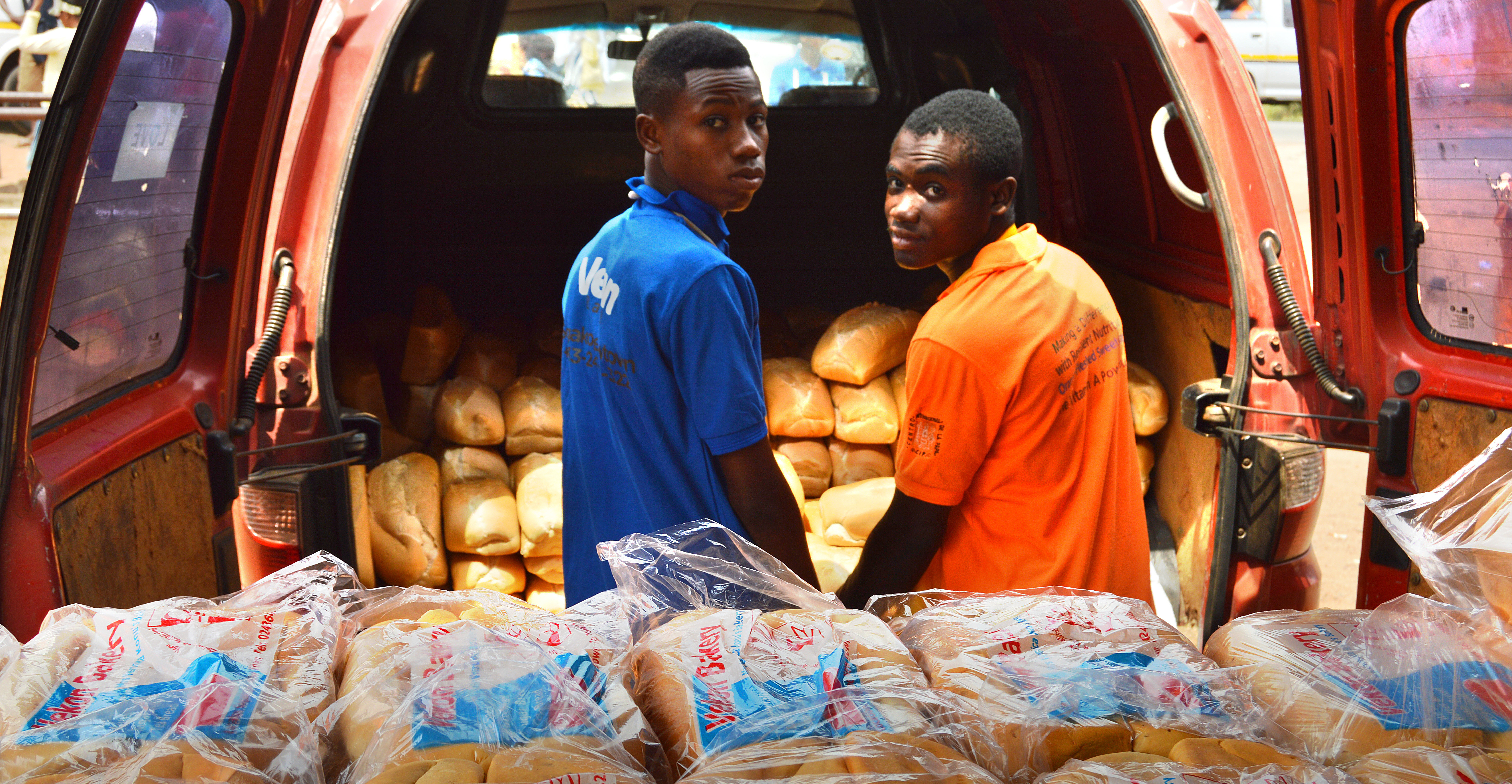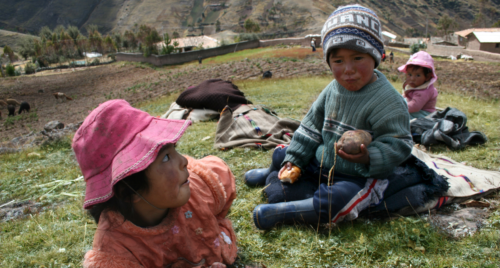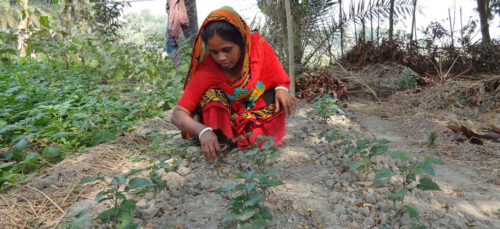
Sweetpotatoes, particularly the orange-fleshed varieties, have unexploited potential to contribute to nutritional and economic wellbeing in subSaharan Africa. This project will increase sweetpotato productivity and incomes on a large scale, benefiting farmers, processors and consumers, while also creating new job opportunities.
Background
Poverty and malnutrition continue to hamper economic and social development throughout sub-Saharan Africa, particularly affecting people living in remote rural areas. Nutrition-sensitive agriculture, focusing on nutrient-rich crops to improve diet quality, could make a significant contribution to improving food security, child health, family nutrition and household incomes. Orange-fleshed sweetpotato, with its high vitamin A content, offers ready opportunities to make a significant impact. It is early-maturing, allowing families to grow two or three crops per year. It is also relatively tolerant to drought, and very versatile, having edible roots, leaves and vines. In addition, after harvest, crop residues make excellent silage for livestock.
This project aims to scale up sweetpotato production, processing and marketing. This will create a diversified sector that delivers nutritious food to rural and urban populations, especially the poor. It will also provide business opportunities for women and young people. The project is part of the large-scale Technologies for African Agricultural Transformation (TAAT) initiative, funded by the African Development Bank. This is a knowledge- and innovation-based response to the need to scale up proven technologies across Africa. TAAT aims to boost productivity and make Africa self-sufficient in key agricultural commodities. The initiative is being implemented in more than 20 countries and focuses on nine priority value chains, including orange-fleshed sweetpotato.
Objectives
The orange-fleshed sweetpotato component of TAAT has three specific objectives to:
- increase productivity of orange-fleshed sweetpotato among smallholders and large-scale farmers;
- improve incomes from the sale of fresh sweetpotato roots and processed products, as well as promoting employment opportunities; and
- improve incomes from the production and use of sweetpotato-based silage in small- to medium-scale livestock and dairy systems.
In alignment with the Sustainable Development Goals, these activities—through the development and large-scale dissemination of appropriate agricultural technologies— support the goals of the Africa Development Bank Feed Africa Initiative.
Approach
The orange-fleshed sweetpotato COMPACT of TAAT is being implemented in 12 core countries where similar activities are underway or have recently phased down. This approach seeks to exploits the benefits of the crop by pursuing a strategy of market development through innovation.
Strengthening seed systems
The first step is to build viable seed systems based on the over 60 varieties already released. This work capitalizes on the ongoing work of the International Potato Center (CIP) with national partners to disseminate sweetpotato, which by 2019 had already reached nearly six million households. In addition to knowledge on improved and sustainable farming practices, farmers receive training on business skills. Sweetpotato vines are distributed on a large scale via national agricultural research institutions, local government offices and farmer associations, with the aim of increasing awareness and demand in new locations. At the same time, additional private sector multipliers are established to provide sustainable supplies of planting materials to those adopting the technology.
Jumpstarting markets
The next step improves market links and brings producers with consumers and other local buyers together including processors, restaurants and schools in rural areas. The projects raises awareness of the benefits of sweetpotato in the processing industry, especially bakeries in urban areas, through the adoption of a business innovation hub approach, creating space for knowledge sharing, problem solving, etc.
Many different products can be made from orange-fleshed sweetpotato purée, including bread, mandazi, chips and crisps. The puree can also be incorporated into products like salads, muffins, and baby food. A key part of the project is to encourage business start-ups among women and young people using readily available equipment to produce simple processed products. Scientists have adopted a ‘step-down’ or ‘training of trainers’ approach for greatest impact. Community outreach and media campaigns also highlight the nutritional benefits of orange-fleshed sweetpotato.
CIP and partners have already developed technologies and training courses on manufacturing sweetpotatobased livestock silage that can be stored for several months. This successful business model is being adapted and extended to additional countries and intensified in countries the technologies have already been adopted. Activities include training on the production process packaging and storage, and business skills. The sweetpotato COMPACT places particular emphasis on engaging young people and women in related businesses along value chains.
Achievements
CIP’s ongoing work has shown that disseminating highquality planting materials and improved production practices can double farmers’ sweetpotato yields. In addition to providing vital food security, this is likely to create a surplus to sell, thus increasing household incomes and supporting business opportunities.
In the first year (2018), the project worked with more than 500 seed multipliers and established over 200 hectares of multiplication plots, planting a total of 100 million cuttings. In dry areas, the project is promoting the use of ‘Triple S’ (storage in sand and sprouting) technology for efficient root storage and early multiplication. The first year also saw the establishment of 349 demonstration plots, with around 300,000 farmers receiving cuttings of orange-fleshed sweetpotato to plant on their own farms.
To realize the full benefits, farmers need to adopt good agronomic practices, and project staff delivered 143 ‘training of trainers’ courses in 2018. More than 100 processors have also received training, with 28 establishments already processing orange-fleshed sweetpotato and another 28 expressing an interest.
Expected outcomes
| N° | |
| Households reached with orange-fleshed sweetpotato | 1.5 million |
| Additional area planted with sweetpotato | 3,960 hectares |
| Additional yield harvested | 39,600 tons |
| Additional jobs created | 100,000 |
Contact
Kirimi Sindi
CIP, Rwanda
k.sindi@cgiar.org
Thanks to our donors



